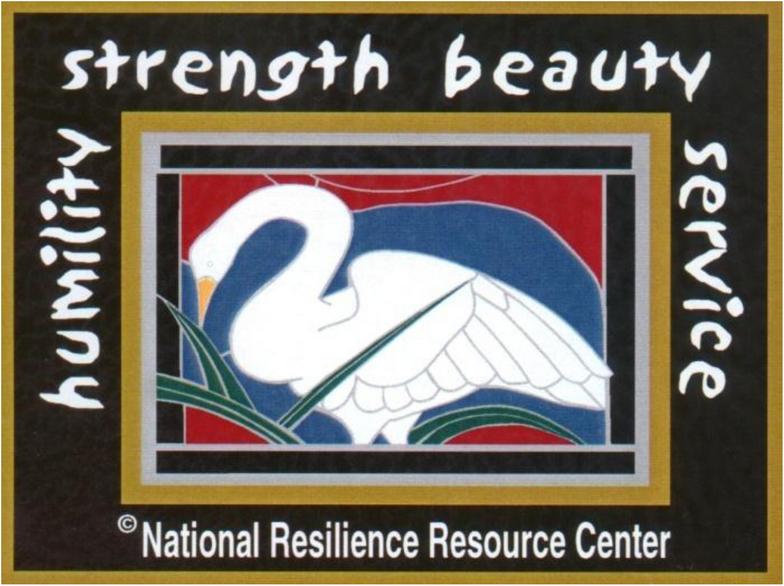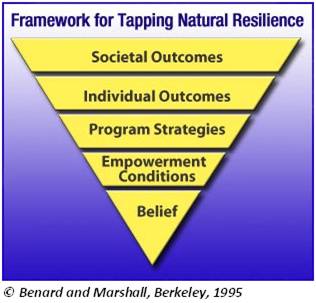National Resilience Resource Center
Resilience Framework
The process of tapping resilience is deeper than prevention strategies, wellness programs, community empowerment, collaborative initiatives, youth development programs, or interventions, such as traditional therapy. Resilience is an undergirding inside-out process.
To successfully foster resilience, it is essential to focus on the natural, internal, innate capacity of young people and adults for healthy functioning. The process of personal change — or self-righting — is documented in the continuously evolving, broadly multidisciplinary, international body of resilience research. The classic conceptual Framework for Tapping Resilience was developed by Bonnie Benard and Kathy Marshall Emerson to help guide systems in bringing out the best in youth and adults.
Belief in innate human capacity for well-being, understanding principles behind resilience and evidence from resilience research are the linchpins in this systems-change approach.
Environmental and individual change is possible. The essential planning steps examine individual and systemic beliefs, conditions of empowerment, program strategies, and evaluation of both individual and societal outcomes. There are key questions for each planning phase.
• Are all children, youth, and adults at promise? If so, what are the conditions of empowerment that research and best practice support? What fundamental principles are involved?
• What program models employ these principles and create these conditions?
• What results can we realistically expect for children, youth, adults, and communities when we tap resilience?
System Change
Principles
Resilience, or the capacity for innate mental health and well-being, involves more than risk and protective factors typically addressed in research. A natural and illusive internal protective mechanism is also at play. Human beings do life from the inside out. We are thinkers. We notice the sensations thinking causes. We are also knowers connected to wisdom greater than our intellect. We are more than our thinking. What matters is that we think, not what we think. These principles are a practical guide to how we operate mentally. They explain how every human being creates each and every experience moment-by-moment. The Secret, written by Mavis Karn, and created by Wendy Robinson is one example introducing these principles to students. These principles are detailed in this site.
Unlike most planning frameworks that are based on problem-focused needs assessment and external strategies or solutions, the foundation for systems-change tapping resilience is prevention planners — and leaders — understanding about human functioning and resilience.
NRRC emphasizes the natural, ordinary human capacity for healthy transformation and change. Resilience when realized and tapped with sound principles and effective evidence-based strategies, leads to mental health and positive development as well as and societal progress across the board, including even prevention of substance abuse and related high-risk behaviors.
Tapping Resilience and Changing Systems with Fundamental Principles
Find Resources
- Special Interest Resources
Click for Printable PDF.
No part of this site or content may be copied, reproduced, republished, uploaded, posted, publicly displayed, translated, transmitted or distributed in any way (including "mirroring") to any other computer, server, Web site or other medium for publication or distribution or for any commercial use, without NRRC's express prior written consent.




